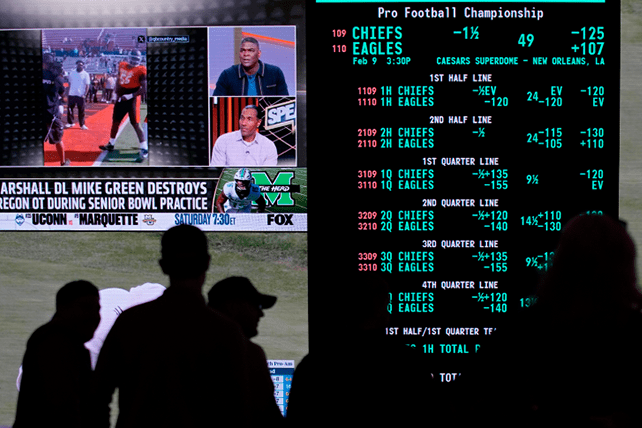“They made sports gambling like playing a slot machine,” he said, and have made betting more addictive and socially harmful. He’s particularly concerned about the overall business model of gaming companies, where customers with gambling problems provide most of the profits.
For example, at PointsBet, a sportsbook owned by Fanatics, a major company, 70% of the revenue came from less than 1% of the customers in 2019 and 2020, according to The Wall Street Journal.
A 2024 report from the University of Massachusetts found that 90% of revenue at that state’s casinos came from only 10% of customers, which researchers found problematic.
“There needs to be a reduction of the industry’s financial reliance on at-risk and problem gamblers, as the 90% of revenue from this 9.9% of the population is much too high,” researchers wrote in the report’s recommendation. (That report looked at casinos, not online sports betting.)
As a Catholic, Bernal said he was concerned that state governments are essentially benefiting from problem gamblers in the form of tax revenue. “We’re talking about loving our neighbors like God loves us,” he said. “This public policy is the complete opposite.”
In Minnesota, where mobile sports betting is illegal, the state’s Catholic bishops wrote to Governor Tim Walz recently, urging him to oppose making such betting legal. Jason Adkins, executive director of the Minnesota Catholic Conference, the public policy voice for Catholics in that state, said expanding gambling is not worth the cost.
Adkins said Catholics don’t see all games of chance, such as raffles or bingo, as unethical, but commercial sports betting is something different, with little social benefit and a great deal of harm due to gambling addictions.
“When you put a sports book in the cell phone of every person and give them 24/7 access to the most addictive forms of gambling and then make it easy to chase their losses with in-game betting, we think this is a serious problem,” he told Religion News Service in an interview.
Kathleen Benfield, legislative director for the Louisiana Family Forum, said her organization has long opposed legalized gambling — seeing it as a public health risk. She pointed to a recent study in The Lancet, which outlines the social harms of gambling.
“Gambling is not an ordinary kind of leisure; it can be a health-harming, addictive behaviour,” the summary of the Lancet study read. “The harms associated with gambling are wide-ranging, affecting not only an individual’s health and wellbeing, but also their wealth and relationships, families and communities, and deepening health and societal inequalities.”
Benfield believes nothing good will come from legalized gambling in the long run.
“It’s a house of cards,” she said. “And it’s going to fall.”

